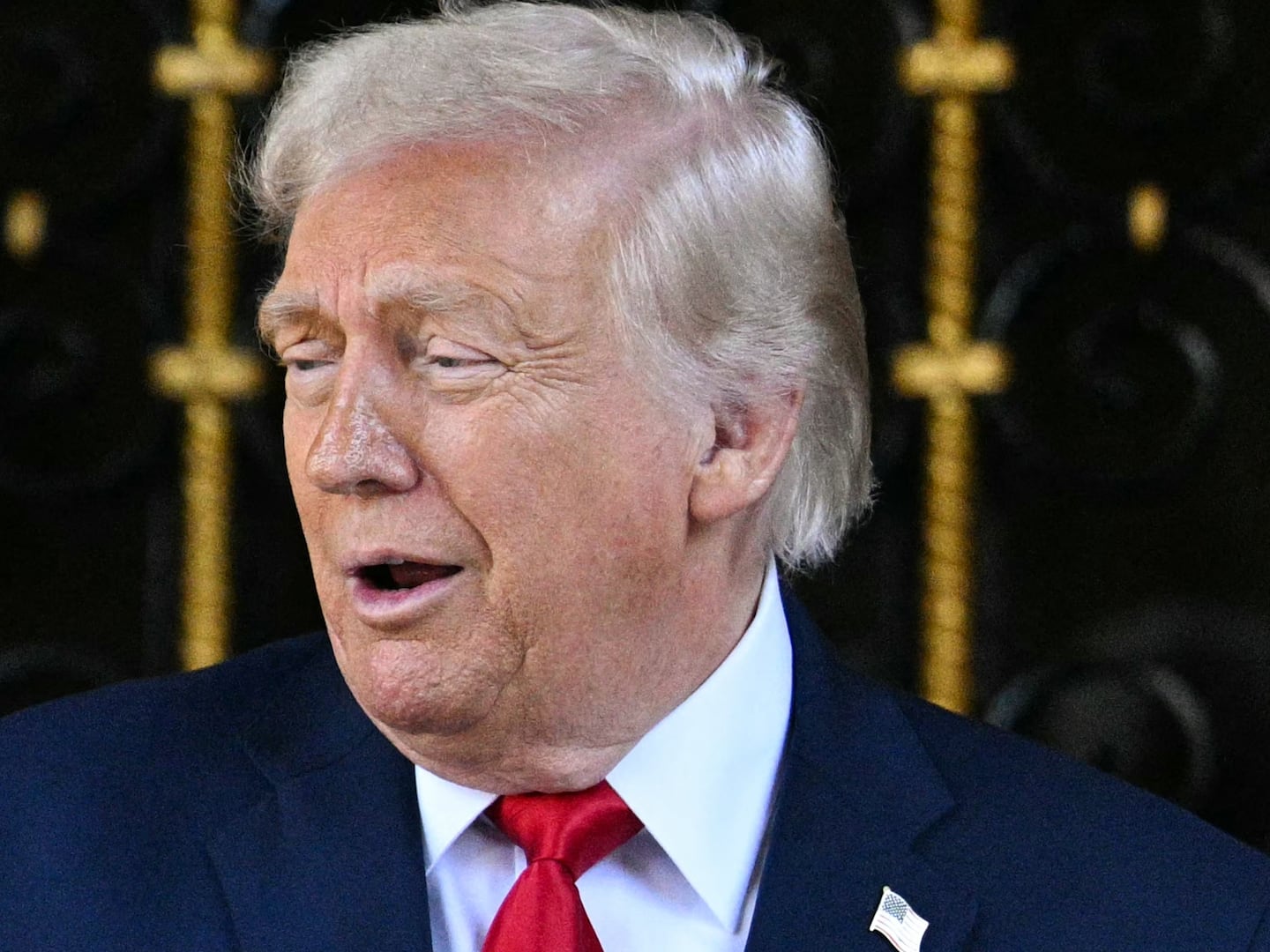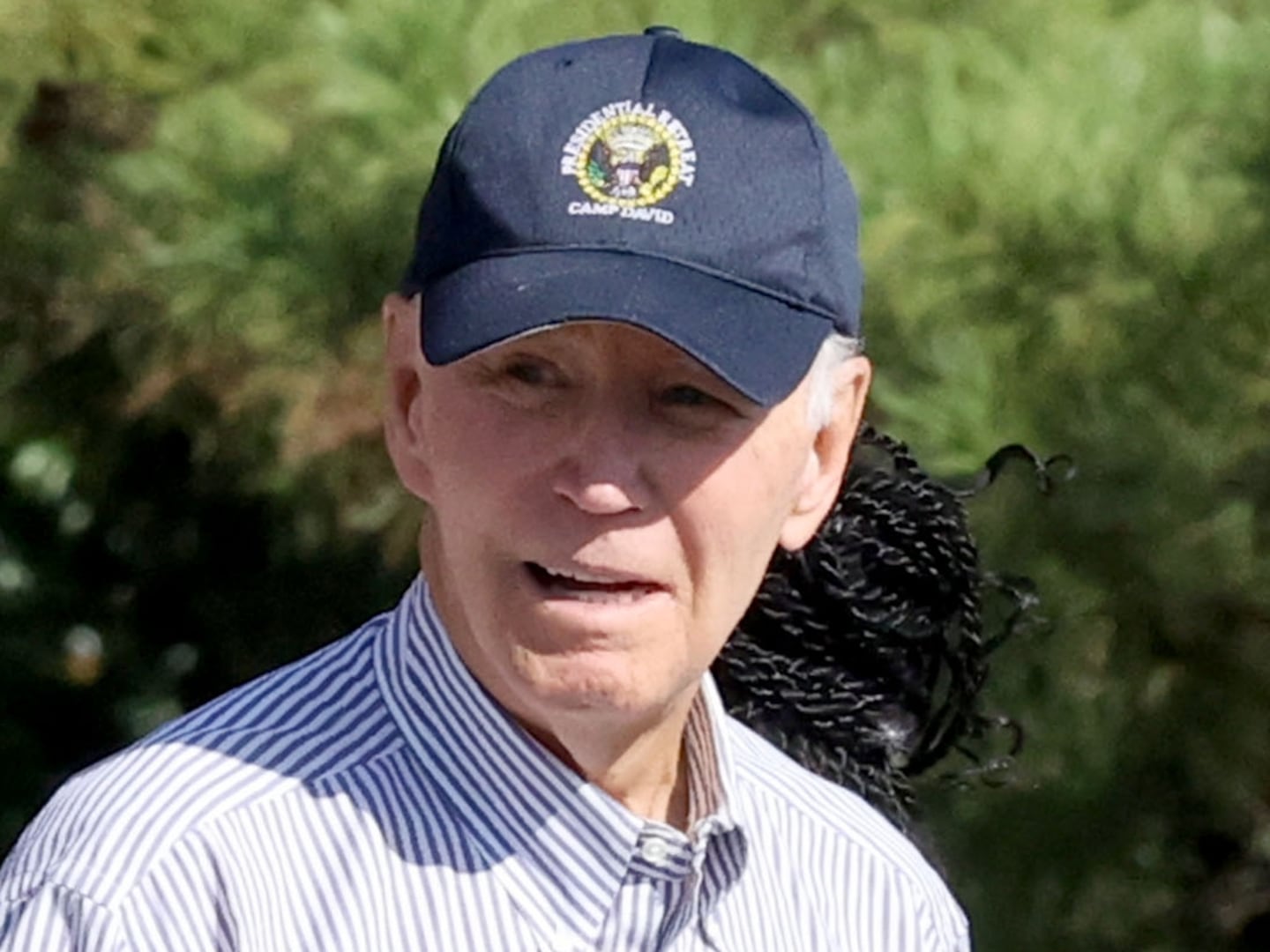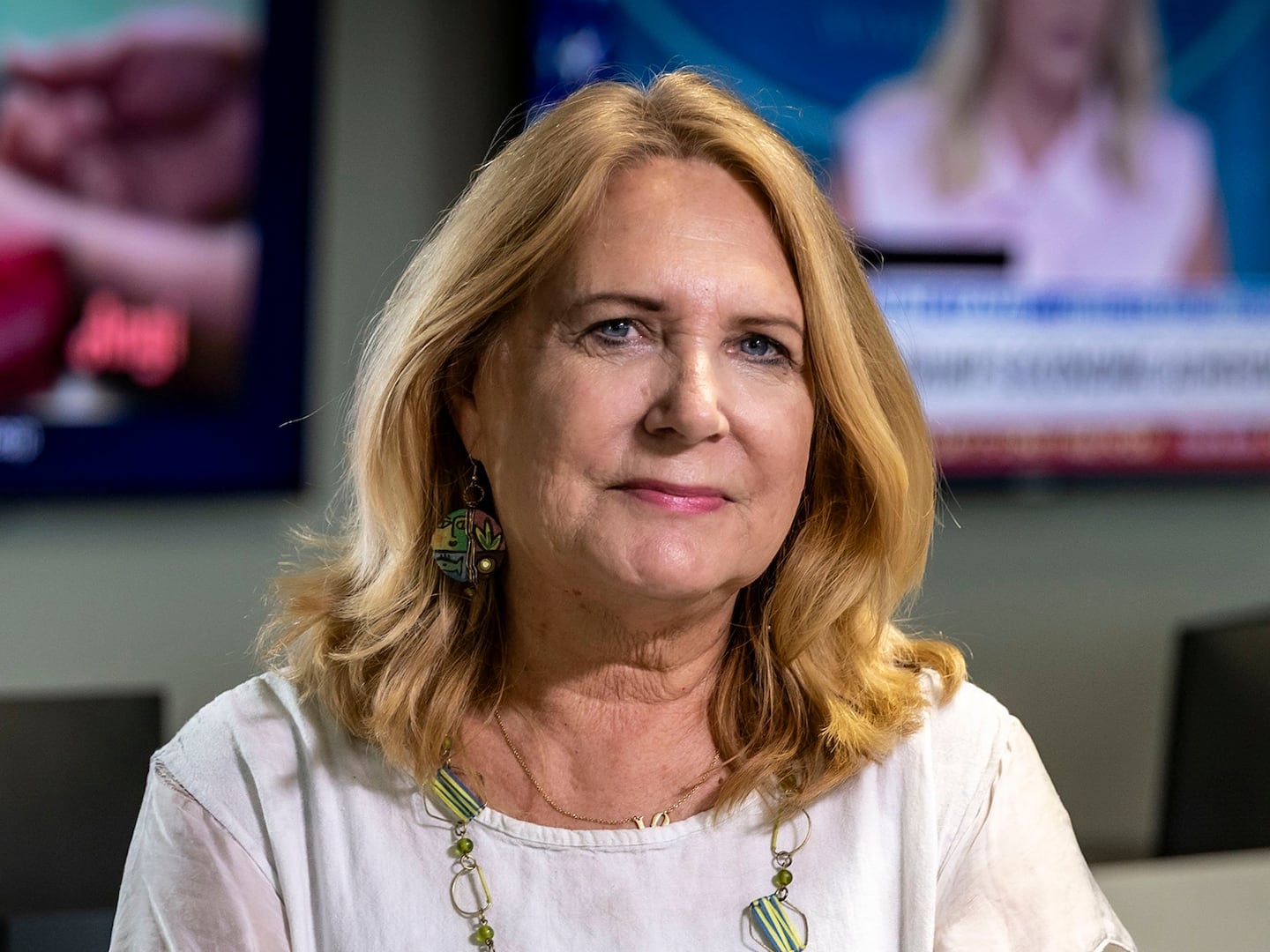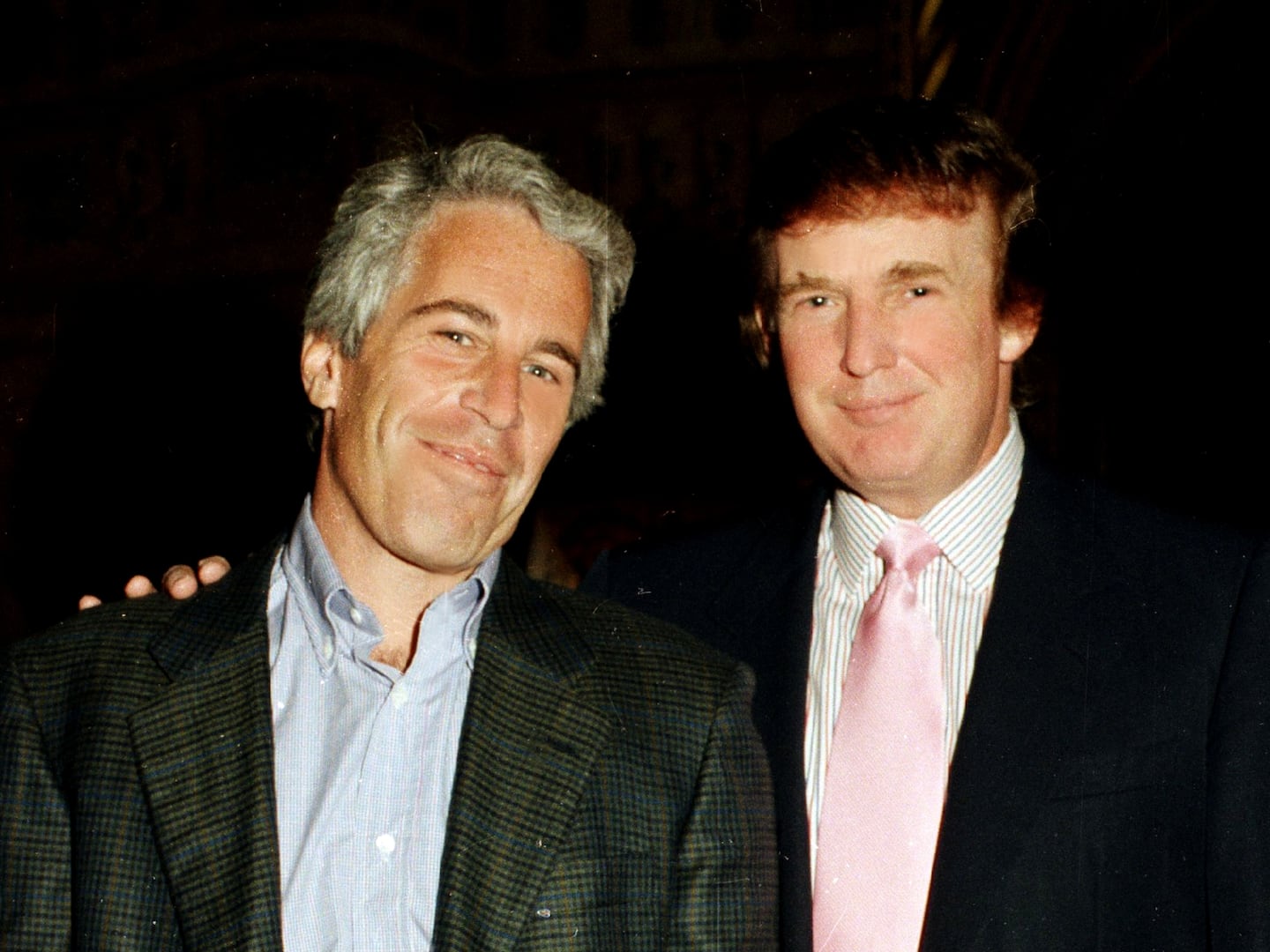The midterm elections are on November 6, and—like it or not—the presidential election will start on November 7. Republicans will almost certainly re-nominate Donald Trump (if he’s still in office), but Democrats will have a long list of potential nominees who will spend 2019 and into 2020 hiring staff, raising money, and debating each other in way too many cable-news beauty pageants.
Debates tell us very little about what kind of president a person would be, so let’s just skip them.
“When Tim Russert was still alive, he and I talked in 2008 about wishing we had a different way to talk about presidential campaigns than who won a debate or who has raised the most money,” says historian Doris Kearns Goodwin. “We should look at their leadership as governors or mayors or congressmen and see whether they had a strong team, whether they acknowledged errors, whether they controlled their behavior. Temperament is key, and I wish we had known more about that before the 2016 election.”
In Leadership in Turbulent Times, Goodwin revisits four presidents that she has written about previously—Abraham Lincoln, Teddy Roosevelt, Franklin Roosevelt, and Lyndon Johnson— and puts them under scrutiny as leaders. She revisits each of them at three similar periods in their lives and finds parallels in their early personal setbacks, their intellectual curiosity, and their responses to national emergencies.
Goodwin sat down with The Daily Beast to talk about the book.
The book is about four American presidents that you’ve written about in previous books. Was the idea to find what they had in common?
When I finish a book, I move all the research out of the library and get ready to move on to the next one. I always feel like I’m leaving an old boyfriend behind. All of the books are really about leadership, and leadership is what I talk about more and more to town halls and business groups. I wanted to go back and look at those four again through a leadership lens.
You start the book with chapters on each of these presidents in their youth. Was that more for framing, or do you think it says something about each of them?
Several years ago, a college student raised his hand after a talk I did about presidents and said, “How could I ever become one of them? They’re remote. They’re on Mt. Rushmore.” I thought that if I could write about them when they were still young, still struggling to find their paths, that people could identify them. They all went through adversity when they were young, and adversity makes people stronger. I wanted to go back and see them at pivotal moments. I wanted to see them at moments of adversity.
The book cycles through the four presidents at three different points in their lives and careers, so you have these 12 clearly defined chapters. Did anything jump out at you from thinking about it that way?
One of the arguments I make in the book—that I don’t do well enough myself—is how important it is to get away from your daily work and find time to think. Lincoln went to the Soldiers’ Home, and he came up with the rationale there for the Emancipation Proclamation. FDR takes a 10-day fishing trip and comes up with the rationale for the Lend-Lease Act.
If you look at the rules of leadership as this continuum where at one end you find commonalities in most leaders and at the other end everything is situational and nobody knows anything, where are you between those two?
The context of the situation either plays to a president’s strengths or plays to his weaknesses. Herbert Hoover was the president during the Great Depression, and he didn’t have the temperament to handle it as experimentally and confidently as FDR did. William McKinley was president at the height of the industrial revolution and didn’t have the foresight of what those changes would mean that Teddy Roosevelt did. James Buchanan was president in the 1850s and is considered one of our worst presidents because the country was splitting apart, and then Lincoln came along. On civil rights, I don’t think JFK would ever have gotten a desegregation bill through Congress, and Lyndon Johnson did. The situation calls on strengths.
Did you find some commonalities?
Most great presidents have some commonalities. They have the ability to build a strong team of people who can question assumptions and argue with them and still mobilize around an idea once the president makes a decision. Lincoln and FDR were certainly able to do that. They have the ability to grow and recognize errors. They have humility. Teddy Roosevelt learned in the state legislature that using blistering language didn’t help him. They all went through extraordinary adversity—Lincoln’s extraordinary depression, FDR’s polio, Teddy Roosevelt losing his wife and mother on the same day.
They figure out how to relax and replenish themselves. Lincoln went to the theater a hundred times during the Civil War. Teddy Roosevelt played tennis and climbed cliffs in the afternoons when he was president. FDR had a cocktail hour every night during World War II where the rule was that you weren’t allowed to talk about the war. Lyndon Johnson was an outlier there.
Lyndon Johnson could never get away from being president?
During his last year of the presidency and when he was at his ranch after he was president, he would float on rafts in the pool with a telephone and a notepad.
I don’t remember if your husband wrote this or someone else did, but didn’t Johnson used to get in the pool naked and dictate notes to your husband sitting beside the pool?
Yep. [Laughs.] That was at the pool inside the White House.
You write in the book about writing a story that appeared in The New Republic and challenged LBJ on Vietnam right as you started a White House Fellowship. How did that set up your interactions with Johnson over the rest of his life?
It was an extraordinary thing on his part. I was a graduate student at Harvard when I was selected as a White House Fellow, and I was active in the anti-Vietnam War movement. I co-wrote an article advocating for a third-party candidate to challenge Lyndon Johnson in 1968, and the article—which was called “How to Remove Lyndon Johnson From Power”—came out a few days after I started the fellowship and met Johnson in the White House. I thought he would kick me out of the program, but he told his people, “If I can’t win her over, no one can.” I stayed with him after the White House Fellowship and helped him work on writing his memoirs.
You were obviously sitting in different proximity to Johnson than Arthur Schlesinger had with Kennedy, but did you think of yourself as a historian/adviser when you were there?
I don’t think so. I was 24 years old and wasn’t even a presidential historian at that time. My PhD thesis was in Supreme Court history, and my plan then had been to go back to Harvard to start teaching. I didn’t think of myself as an Arthur Schlesinger, who is one of the great historians of our time. I look back now and how differently I would have watched what was happening if had been a historian.
You moved to Austin after the 1968 election or sometime in 1969?
I never fully moved there because I had gone back to Harvard to teach, so I would go there on weekends and holidays.
And you would sit across a desk from him, and he would answer questions into a recorder?
Exactly right. We would talk at his office at the ranch. Sometimes we would talk driving around in the car or sitting in the pool.
You mention in the book that Johnson talked about Truman as a decision-maker who didn’t second-guess himself. Were there other presidents that he talked about?
FDR said there were some leaders who walked the carpet at night wondering if they had made the right decisions that day, and Johnson wasn’t like that. He would say that once he made a decision with the best information he had that he would be able to sleep at night. If the decision wasn’t right, he could try and learn from that and change it.
The thing business leaders ask me about the most is how presidents sleep at night, how they manage their lives when they’re under so much pressure. Lincoln would wake up at night and read Shakespeare’s comedies to get the Civil War out of his head. Teddy Roosevelt would write letters. FDR would imagine himself as a boy at Hyde Park sledding down a hill and walking back up again. I asked one CEO how he sleeps at night, and he said, “I take an ambien.” He laughed, but that’s what happens in the modern world.
It’s interesting to think about business leaders looking to presidents for guidance because the CEO president hasn’t worked very well. George W. Bush and Donald Trump are our two self-styled CEO presidents, and neither have applied that background to much success.
A CEO or a president of a university or a political leader all operate in different contexts, but leadership is about human nature. It’s about how deal with people, how you build a team, how you have the emotional intelligence to deal with that team, how to relax under pressure, how you grow. When Lincoln got angry at someone, he would write what he called a “hot letter” where he would write a letter and then put it aside without sending it. Some of those letters were discovered years later in Lincoln’s papers marked “never sent, never signed.”
I told a CEO about that, and he wrote me a letter later that said, “Lincoln saved me.” He said he had written an email to some subordinate thinking the subordinate and done something wrong, and he saved the email in drafts. The next day, he found out his information had been wrong, and he never sent the email. Those are the kinds of things—building a team, controlling anger—that successful people can apply to their everyday lives.
If there is one of these four presidents that Donald Trump has tried to emulate, it would seem to be Teddy Roosevelt. Would you say that’s right?
Teddy Roosevelt would have taken to a world with Twitter. He wrote in short, punchy statements like “speak softly and carry a big stick” and “don’t hit until you have to.” He gave Maxwell House the slogan “good to the last drop.” He faced a time similar to the current time because the industrial revolution had shaken up the economy similarly to how technology and globalization are doing today, and he understood that some people felt left out of that change.
A lot of presidents have used stories as a rhetorical device in State of the Union speeches and convention speeches. Are you skeptical at all of that as a device that allows the speaker to control the universe of facts?
When FDR sees people are taking their money out of the banks because they don’t think their money is safe, he calls a bank holiday and says he’ll have legislation in a week to deal with the banks. He went on the radio and described as a story to people how banks use deposits to make loans and don’t just keep the money in a vault, and he said that your money is safer in a bank than in your mattress. When the banks reopened, people brought their money back.
I think that depends a lot on the credibility of the speaker. You wrote about Lincoln understanding “that concrete examples and stories provided the best vehicles for teaching.” He’s probably right, but he’s Honest Abe.
If you trust the speaker and the story, it is a powerful tool. One of the things that made FDR such a successful leader is that people trusted him. People felt about him like he was a neighbor or a friend. Johnson lost the public trust over the Vietnam War, and he didn’t run again in 1968 because of that.
If you go back to the media environments that were the contexts for these four presidencies and even further back to the Penny Press era, do you see a period that gives you any sense of where we’re supposed to find credibility in a diffuse media environment?
In the 1850s and 1860s, the main way you got your news was through the partisan press. You would have a subscription to your party newspaper. If you were a Republican, you read the Republican newspaper. If you were a Democrat, you read the Democratic newspaper. Those papers had entirely different factual presentations of what was happening in the world. That exacerbated the divisions between the parties and between the North and South. National newspapers and national radio developed that put more emphasis on reporting. Now we’re back to a period where people can read just the news they want, and it’s a real problem.
I’m not sure how optimistic I feel going forward. Dan Pfeiffer told me in July when his book came out that he thinks younger people are more savvy about the new media world and that he thinks we’ll come to some consensus on what the truth is again. Do you see how that would happen?
There’s a will and a desire for that, so I’m optimistic. One thing I hope this book will get across is the idea that we’ve been through far more turbulent times than what we’re going through now. Teddy Roosevelt saw huge divisions between labor and management, and he was able to channel that energy into reform that came to be accepted by the country. Lincoln came into war, FDR came into the Great Depression, and Johnson came into the assassination of JFK and civil-rights turmoil.
We need leaders to tell us that we’ve been through these things before and to show us how to do it. FDR said that problems created by man can be solved by man. We created the internet. We created the digital world for these alternative universes of facts to exist. I suspect there will be a solution and that democracy won’t be as fragile as we think it is.
I don’t know how Trump’s presidency will end, but I was encouraged to hear one of the jurors after the Manafort trial to say, basically, “I voted for Trump and have a MAGA hat in my car, but that dude was guilty.”
I agree with you totally. She said she wanted Manafort to be innocent but that the facts of his guilt were just overwhelming. That’s the kind of confrontation with facts that can accumulate over time. People don’t want the tribalism that’s in Washington. People don’t like the campaign-finance system the way it is. There are answers to these problems. People don’t want the parties to run congressional districting. We need substantive changes.
I hope we don’t have debates at all in 2020. I can’t remember the last time a debate was a positive factor in a presidential election.
I totally agree with that. We have to create the conditions that make people actually want to run for public office and be in public office. There’s a lot of evidence of young people now running for office who never would have gone into public life before, and maybe that will begin to change the tenor of what happens in Washington and what it means to be in public life.
The left has put a lot of hope in Robert Mueller as the last best hope for democracy, and I’d go further and say that he may be the last best hope for a consensus reality. Is there one of these presidents or someone around them who stands for the idea that we can’t always have our own reality, that one plus one always equals two?
Abraham Lincoln reached out to the South and said, “If the North still had slavery, we wouldn’t know how to end it; if the South didn’t have slavery, we wouldn’t start it. We have to go forward with both sides praying to the same God.” I think that’s where the notion of empathy and understanding of people who don’t agree with you is so critical. A president needs the capacity to speak to people who don’t agree with him.
If the ability to ascertain truth and reality is somewhat a function of empathy and a having genuine interest in other points of view, we don’t have that president right now. One throughline of the four presidents you write about in this book is empathy.
I couldn’t agree with you more. It’s one of the essential qualities. As a kid, when Lincoln saw kids putting hot coals on the backs of turtles, he said, “Don’t do that. This is wrong.” Teddy Roosevelt got into politics as an adventure, and he went into the New York tenements from a privileged background and developed that empathy. FDR’s polio expanded his sense of understanding of other people and made him more understanding of other people’s problems. Lyndon Johnson learned empathy teaching Mexican-American kids in Cotulla, Texas. We need to think about those things when we look for our leaders.






